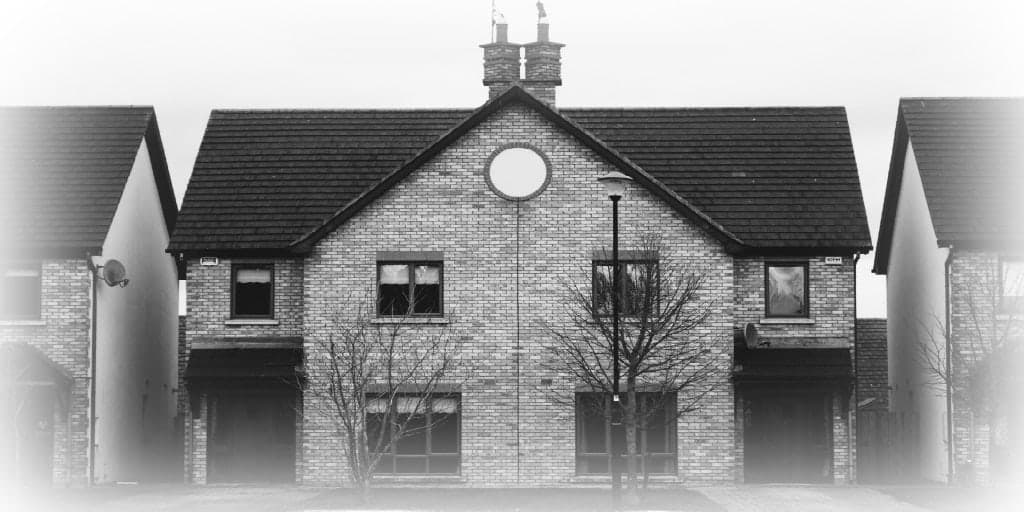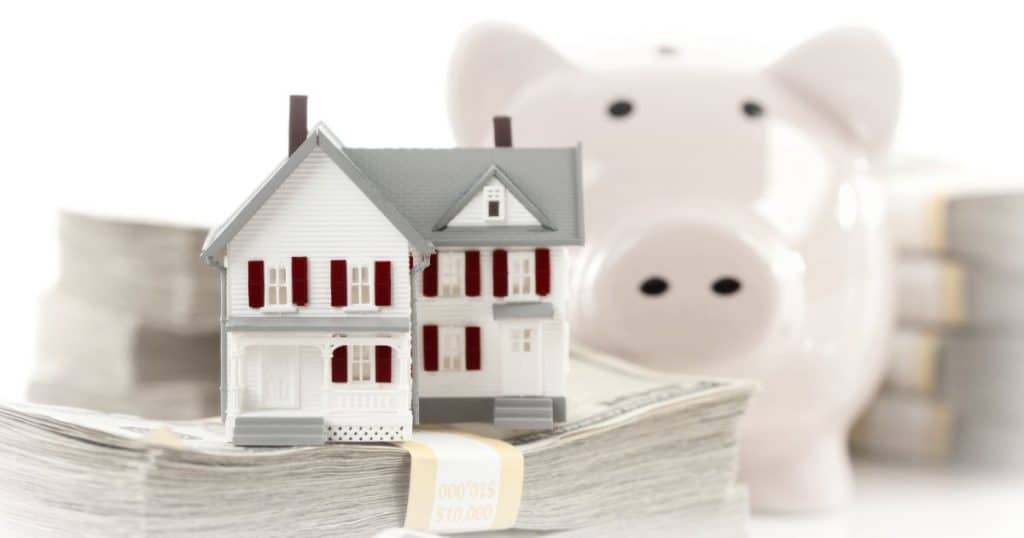Real Estate Investing: A Good Way to Build Wealth?
(This page may contain affiliate links and we may earn fees from qualifying purchases at no additional cost to you. See our Disclosure for more info.)
The answer to whether or not real estate investing is a good way to build wealth depends entirely on your definition of wealth.
Your individual long and short-term goals, as well as your threshold for risk, are crucial factors in determining if investing in real estate is the right path for you.
Let's unpack that.
Decide on Your Definition of Wealth
“Wealth” means different things to different people.
What are your goals?
Are you interested in developing a stable investment portfolio allowing you to live with a sense of financial security and look confidently toward retirement?
Or are you interested in generating steady monthly cash flow over the top of your regular income for an additional income stream to help you meet other financial goals and dreams?
The good news is investing in real estate can absolutely be a way to build wealth.

Depending on your threshold for risk and goals for retirement, real estate investing can be anywhere from a solid piece of your retirement portfolio to an aggressive opportunity to build substantial wealth.
Real estate is very stable, historically. Over time, properties tend to appreciate thanks to inflation and demand.
Understanding the different types of real estate investments and determining your comfort level with risk will help you decide if including real estate in your investment portfolio is the right fit for you.
Decide What Type of Real Estate Investing to Tackle
Real estate investment options can be pretty lucrative, though they often require a strong threshold for stress and tolerance for the unexpected.
Some forms of real estate investments can generate cash flow quickly. Others can take a bit longer to create cash returns.
Real estate can be a worthwhile investment depending on your level of interest, risk threshold, and available start-up capital.
Let's take a look at these various ways to dive into real estate investing for building wealth:
- Flipping Houses
- House Hacking
- Single-Family Rentals
- Duplex Properties
- Vacation Property Rentals
- Commercial Properties
- Holding a Mortgage
- Real Estate Investment Trust (REIT)
- Tax Lien Investing
- Personal Residence
Flipping Houses
To flip a house means, quite simply, buying low and selling high.
Find the property in the worst shape in the best neighborhood. Put in the time, money, and sweat equity needed to renovate the home and bring it in line to compete with comparable homes on the market.
Then, sell the home at a profit, ideally within a few months.
Buyers look favorably to buying a home already rehabbed where they don't have to do the work. So, they'll pay more than the price of the house before the flip.
You're essentially pricing the home for the buyer to get the move-in ready home they want while you get paid for the work you did on the rehab itself.
If all goes as planned, you can take the cash you made on the sale and invest it in the down payment on your next flip.
The house flipping process only works for those who have the fortitude to withstand the stress of both the rehab process and the knowledge there is no guarantee the house will sell quickly.
House Hacking
In addition to flipping houses, one can build wealth and generate monthly cash flow by buying a duplex, a multi-unit (or even multi-room) home, and then living in one unit while renting the rest.
This is a real investment technique known as house hacking.
The prospects for generating cash flow on these types of investments are potentially smaller than with a flip, but the risks are lower as well.
House hacking is often a great way to find your threshold for risk with real estate investing.
It's not for the faint of heart, however.
There are challenges unique to living under the same roof as your tenants. Remember, they won't have the same personal investment in the property you do.
So if they don't pay their rent on time or care for the property, it will create additional work and expense for you.
However, the benefits of this type of real estate venture can far outweigh the risks, given your mindset.
Living in the property while renting part of it out can result in a lower interest loan and possibly lower down payment, which can be more affordable than a flip.
While you will have regular maintenance costs to contend with, you won't have to finance or coordinate a rehab effort.
Price it right, and your tenants will cover your mortgage with their rent payments and ideally generate additional cash left over each month.
You can then put that money in your pocket or towards paying down the mortgage. Or stash it away for a down payment on your next investment property.

Single-Family Rentals
Investing in single-family rentals might be the most straightforward form of real estate investing. The concept is simple: purchase a home and rent it out.
If you've done your homework and worked with a local realtor, you'll have chosen a property you can rent for more than the cost of the monthly mortgage.
The surplus in funds each month generates cash flow you can save, put towards maintenance on the property, or save to reinvest in another property.
Like with any investment, there are pros and cons associated with this.
The most significant advantage is that investment property by investment property, you can steadily add to your investment portfolio and build wealth.
The biggest downside is maintaining even one rental property is a lot of work.
And while the rental income does generate money in your pocket each month, it can take time for the funds to add up enough to make a worthwhile re-investment in additional property.
Duplex Properties
Buying a duplex and living in one half while renting the other half out is a form of house hacking that works well for some.
Others buy duplexes and lease both sides to tenants.
Similar to single family rentals, there are pros and cons to investing in duplexes. Yet, living on one side and renting out the other to help pay the mortgage brings unique challenges you need to think through.
Vacation Property Rentals
Many people who consider buying a vacation property consider renting it out when they aren't using it.
They want to use the property as much as possible and rent it out when they can't to make a little money.
Others strictly invest in vacation real estate to earn a profit from it.
Either must carefully perform due diligence on properties to determine if they're suitable investments.
And if the property is in a highly desirable vacation or resort area, keep emotions out of your decision.
If you desire to make money, but you can't cover the expenses from the rental income on a vacation home in a popular destination, it's not a suitable investment.
Commercial Properties
When most people think about investing in real estate to build wealth, they consider the opportunities to invest in residential properties.
However, commercial real estate investing is an avenue worth considering as well. But, this option is also not for the faint of heart.
The success of the business operating within your commercial property space factors into the success of your investment.
With residential property, areas of consideration include neighborhood, proximity to major highways, and school districts.
With commercial properties, factors may include additional physical requirements such as a need for a loading dock, ingress/egress, parking, and potential for foot traffic.
Holding Mortgages
If you own a property “free and clear” of a mortgage, you may be in the position to increase your wealth when you sell the property by holding the mortgage for the new owner.
Instead of taking a lump-sum payment, you'll act in place of a lending institution and extend credit to the new buyers.
Holding a mortgage involves a formal legal arrangement where you collect the payments-including interest-a lender would collect.
In addition to monthly payments, sellers are generally paid a down payment at closing. The mortgage also secures the property as collateral against default.
When holding a mortgage, your income from the property may be at a higher interest rate than some of your other investments.
“Balloon” payments are usually required from the buyer to pay off or refinance the loan from 5-15 years, rather than a typical 30-year mortgage they may receive elsewhere.

REITs
A real estate investment trust, known as a REIT, is similar to a mutual fund; only the investments are real estate properties instead of shares of stock in businesses.
Investors gain a share of the income produced through real estate investments without having to do the legwork of buying, maintaining, and/or selling the properties themselves.
The benefit of a REIT is you'll have much higher buying power by pooling your resources with other investors.
Of course, as with any investment, the risks can be higher as well.
Investing in REITs is a good option if you prefer to be more hands-off with your properties and not want to manage tenants.
REITs are often specialized by type of property. For example, you would invest in a REIT specific to apartment buildings, office buildings, or self-storage facilities, to name a few options.
Tax Lien Investing
When an owner of a property fails to pay taxes to the city or town government where it's located, the government entity can make a legal claim or “lien” against the property for amounts outstanding.
The municipality may then seek to recover money due from the property owners by selling these tax liens to investors.
Those with money to pay the minimum due, established by the town or county government, can bid on the tax lien certificate.
While there is an opportunity to earn money, you'll need a thorough understanding of tax liens and their potential risks before considering this type of investment.
Personal Residence
Of course, perhaps the most simple yet effective way to build long-term wealth through investing in real estate is to buy your own home and live in it.
Consider this akin to having an extra savings account, where the return on investment is not flashy or immediately lucrative.
However, going this route can contribute to long-term overall personal wealth and stability with the security and peace of mind that comes with owning your own home.
The value of the home will likely appreciate over time.
With a traditional mortgage, your monthly payment will stay the same year after year, with minimal changes coming from reassessed property taxes or increased home insurance premiums.
On the other hand, your personal residence will not generate cash flow unless you rent out a room or other space and instead function as a living expense and less like an investment.
So while personal homeownership can help diversify your investment portfolio over time, it may not be the most lucrative way to build wealth.
Do Your Research
When you're ready to start, talk to a realtor in your target area. Find out what features in homes sell well and what average rents are.
Ask how long homes typically stay on the market and look at comparable sales.
Consider where you live and consider your goals.
Cities tend to have higher purchase prices than suburban areas. But that's countered with the higher potential return on investment because you can charge higher rent or sale prices.
Investigate taxes in a particular area too.
Different states and counties have very different property tax rates for homes used as personal residence vs. rental properties.
Mortgage rates can vary depending on a property's purpose as well.

Consider Associated Costs
Any property will require maintenance and upgrades, whether personal residence or rental property.
Some of the changes will be value-added improvements, such as remodeling a kitchen, updating a bathroom, or enhancing curb appeal.
Some changes will be necessary to maintain the property's value, such as replacing the roof or HVAC system. But they aren't considered a value-add.
Maintenance costs eat away at cash flow but are necessary to maintain the value of the investment.
Investing in Real Estate to Build Wealth
Real estate investing is a great way to increase wealth in a relatively short period if you:
- accurately assess your threshold for risk
- do your research
- are willing to put in the work
- accept the risks that come with investing a significant amount of money
When the houses sell or the rent starts coming in, you'll build up your capital.
Then you'll have money to invest in more real estate or other aspects of your investment portfolio.
There are many options available to suit your comfort level when it comes to risk.
And there are many rewards to reap when you properly arm yourself with knowledge, funds for a down payment, and the willingness to do your homework.
Article written by:
Marie Morganelli, a freelance content writer who writes regularly about finance, health and wellness, travel, and higher education. She also provides blog content for several small and medium-sized businesses.
